Thresholds is a series within The Long Road Home, born from the rooms I’ve passed through, the homes I’ve made, and the lives I’ve briefly stepped into along the way. From my own mountain cabins to the kitchens of strangers in faraway places, each story is a doorway we cross to memory, belonging, nostalgia and the places we call home.
In the fall and winter of 2012–2013, I lived with a Greek man in the mountains outside of Sparta in a tiny, off-grid wooden home with no toilet and a woodfire stove built on the ground floor. A couple months earlier, I had met the strong-nosed Spartan, Spiros, at the annual European Rainbow Gathering in the forests of Slovakia. After a brief but intense romance, he invited me to Greece to continue our journey.
It was my first time in the country — and no less, with a dreadlocked hippie twenty years my senior, in impeccable yogic shape, who turned heads everywhere he went in the small, conservative town he called home. I, ever one for adventure and love, rerouted my plans for a storytelling retreat in South Africa to try my hand at secluded, self-reliant living with my new companion.
Until then, I had never lived in such remoteness, with so few conveniences. For a toilet, we dug “shit pits” — earthen trenches for our morning ablutions, covered with ash for sterilization. With no shower, we made do by washing our pits and crotches with bottled water during the week until our weekly hair wash at Spiros’ mother’s house in town. Early winter in the Spartan mountains was cold, but the stove — cleverly built beneath the sleeping loft — kept us warm most nights.
Spiros had a single-burner camping stove, and mealtimes became a slow ritual: chopping vegetables together, boiling water, drinking tea, lighting long Orthodox candles, and pouring generous glasses of wine. To wash dishes, we carried a bucket of dirty plates to a nearby spring and cleaned them crouched on our haunches, the icy water stinging our hands. Spiros’ three-year-old son would often spend the weekends with us, completing the picture with the whines and laughter of childhood.
In many ways, it was a life I had always dreamed of living, though I often questioned whether I could sustain it.
Spiros was a beautiful soul — lavender-scented, deliberate in his movements, quiet and deep. By profession, he was an interior designer for local businesses, though none looked like his own home, which he draped in block-printed sheets from India, embroidered pillows, and bold colours set against vibrant green walls. His space was utterly his own, unique, remote, and open to me if I was willing to stay.
And I did stay — we stayed — for a time.
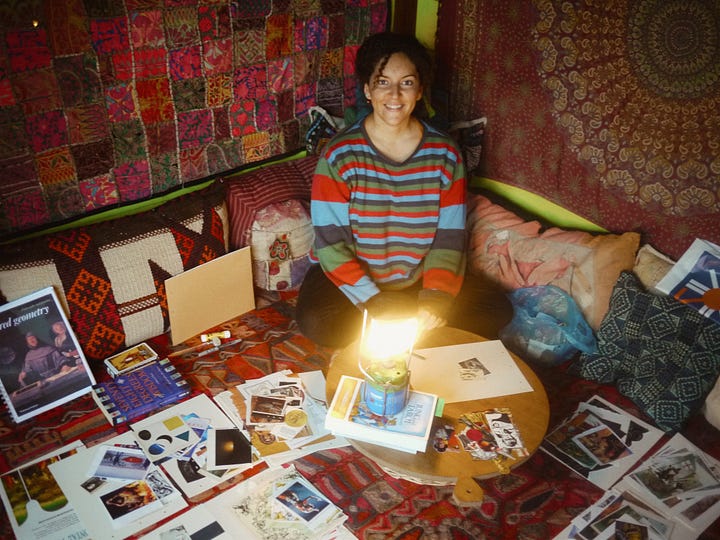
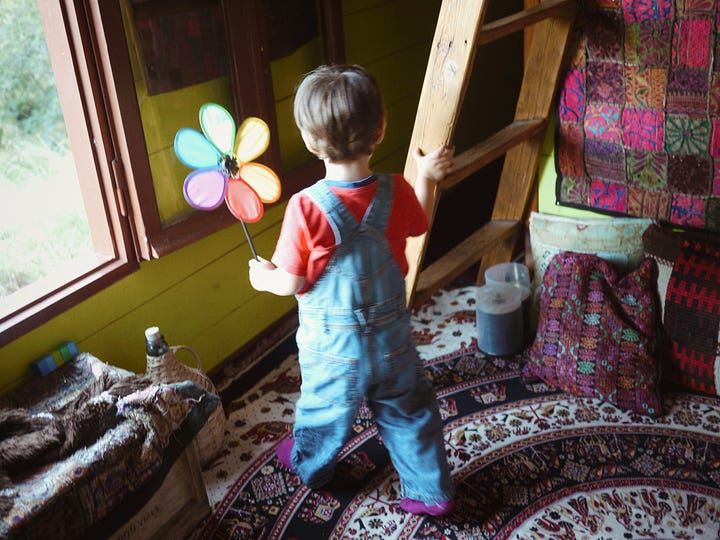
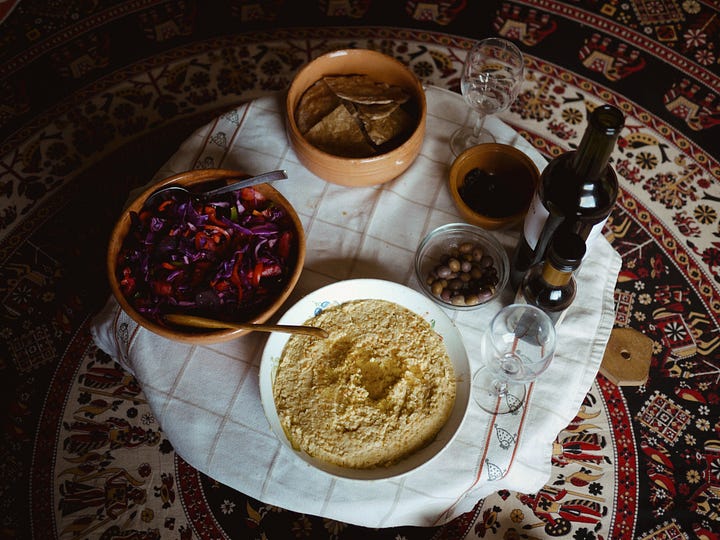
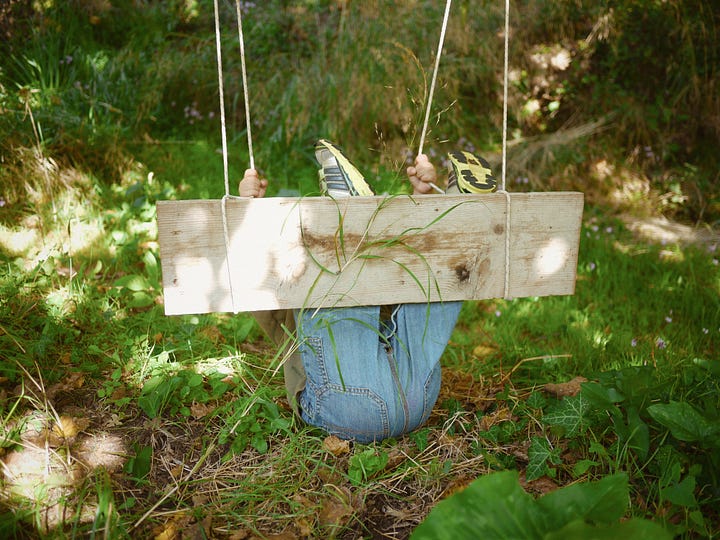
But my doubts persisted, to the great inconvenience of my eccentric European romance. If I’m being honest, I wanted the lifestyle, the freedom, the intimacy with nature and endless olives. I wanted this knowledgeable, fearless man to show me how to live a simpler, truer way. But I never felt the kind of certainty that could quiet my restless heart. Still, we kept making future plans, and I wanted those things too.
So we travelled to Africa together, wandering colourful souks, dressing like Biblical characters in traditional garments, me still flip-flopping between yes and no. Eventually, I chose to return to Canada instead of Greece, and we parted ways at the Cairo airport. It wasn’t the cleanest of breakups, and it lingered in my heart as I questioned whether I had done the right thing.
In those days of unsteadiness, when I wavered between going back and moving forward, I wrote this poem. Kaliva — the Greek word for a rustic dwelling like the one we shared which became a vessel for everything I couldn’t yet say. In that quiet, off-grid life with a man who showed me a beautiful way to live, I tried on a kind of domesticity that both soothed and stirred me. That little house marked me deeply as did the love we lived there. I often marvelled at how such a humble space could contain it all: our tenderness, our grief, our ache for elsewhere, our longing for the road.
And now, all these years later living in the mountains of Mexico with an almost two-year-old, I see threads of Sparta woven into my days, as if that kaliva stitched something lasting into the fabric of who I’ve become.
KALIVA
Teepee poles stood naked
huddling
napes of their necks resting
we'd never dress them in their skins
and sit inside by the hearth of a fire
or wake to embers
trailing smoke to the heavens
We wouldn't make it that long.
I crossed the threshold to
your heart and the door
to your hand-built home
where the fragrance of a thousand
burned incense sticks
hung in that stale air
trapped
in a breathless room of
prayer and loneliness.
Between her walls, we’d sculpt dreams
from tumbleweeds and olive seeds.
I ran my hands on her rough edges
like the squiggly lines around your eyes
that form angel wings when you smile.
You, too, were filled with rough edges
but you never let me close enough to touch them
and maybe I didn't want to
afraid to leave you like an open sore
without the dressings of my love.
We’d bend the bows of her roof
walls shuddering with my wandering heart
her chest heaving with the pressure
of containing so much.
With bags packed, we’d cross
that spot on the dewy grass
where you once spread a blanket and
made love to me in blinding winter sunlight
and where I saw you play a lute
with the kind of grace
my body knows of your hands.
I turned to take one last look at her
from the bend where the swing hung
on the big berry tree
mystery enveloping me
like the full moon at midnight
glimmering blue
on the smooth edges of grass stalks.
With one hand to my heart
I bowed my head
for it was not I who’d crossed her threshold
but she who’d crossed mine
and though she’d never be my home again
she spun webs where you and all
things from the gypsy road would remain.
We’d keep on walking to stranger lands
that'd make us strangers to each other
and later, I'd hear she was too tiny
too full of our memories
to give you any peace
so you’d leave her barren for the city
and its people whom you once loathed
but in whose faces you could forget mine.
That empty mountain house still stands
filled with our memory
like a stream of moon sparkle
glistening the edges of a dark canyon
where everything is forever perfect
even if it never was.
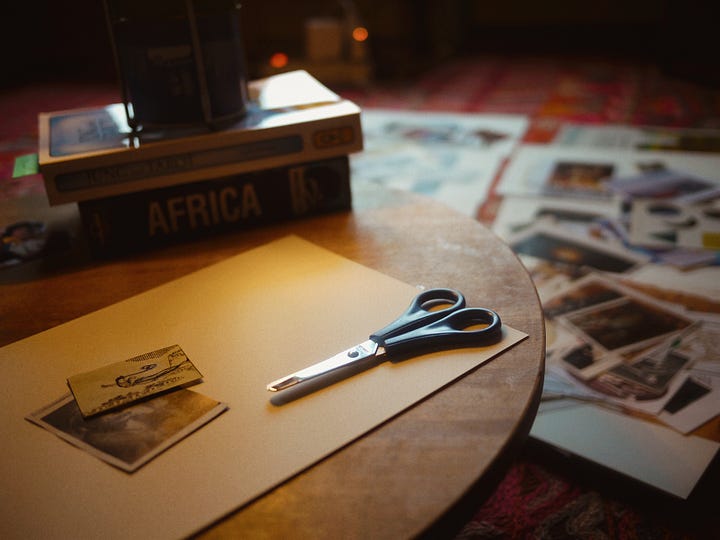
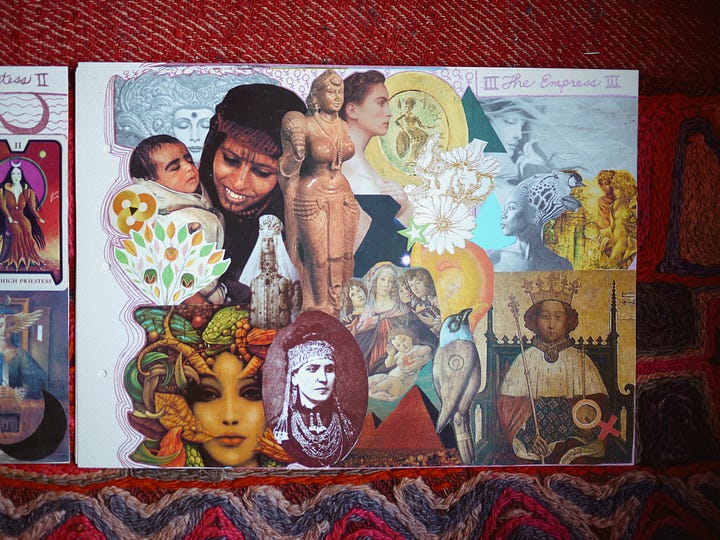
Thresholds is an unfolding. A new doorway opens every few weeks. When it arrives, light a candle, pour some tea, and walk with me through the memory of a place.
Ritual & Reflection
Homes don’t have to be forever to make their mark. Some hold us just long enough to reveal a version of ourselves we didn’t yet know. They give us experiences, lifestyles, and access to parts of our identity that we wouldn’t know otherwise. And many times, they offer a doorway to a romance that yearns for a nest to grow.
Journalling Prompts for Further Exploration
Describe a home that shaped you.
Have you ever crossed a threshold and known you wouldn’t return the same?
What places do you still carry inside? Use your five senses to describe them.
What are the small rituals of the day that make you feel at home?
Have you ever left a life behind — even though part of you wanted to stay?
Sacred Assignments | Invitations for Deeper Embodiment
Create a home altar
A home altar is a way to honour the spirit of place and the things you love. It's not about religion or perfection. It's about presence. A quiet corner that says: This is sacred. This mattered.
On a shelf, table or corner, arrange crystals, photographs of loved ones and spiritual icons, flowers, and small sacred objects. Light a candle, burn some incense. Say a prayer. Connect within. Let this altar change with you.












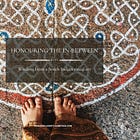
Awe! All the feels Sistar, as always with your writing!